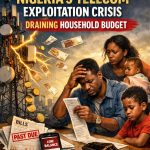Showbiz
Remembering Legendary Nigerian Drummer Tony Allen
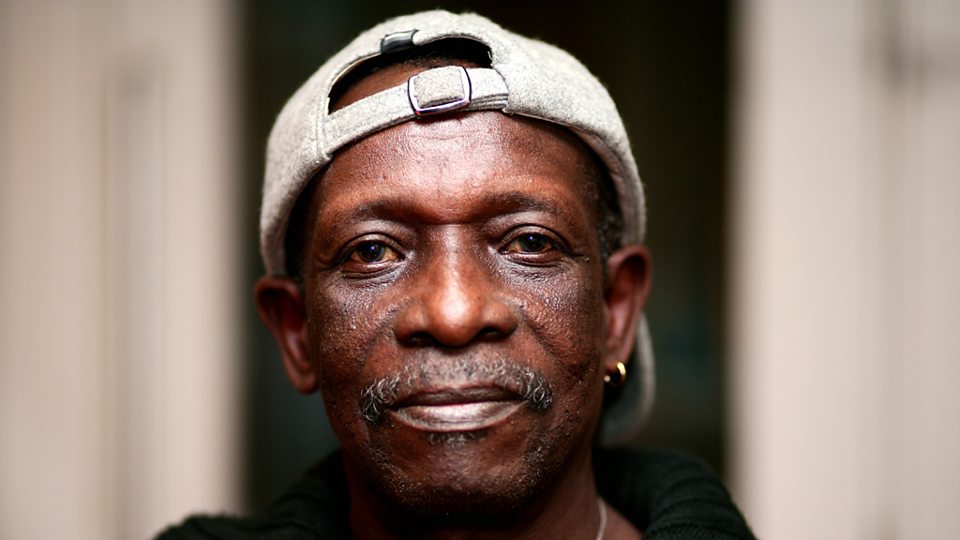
By Kester Kenn Klomegah
Exactly in August 2009, legendary Nigerian drummer, Tony Allen, who created the Afrobeat along with his old bandmate, Fela Kuti, and I had our first historical meeting in Paris, France.
I had flown in from Shanghai, China, to meet with him for an informal encounter. Despite our heavy working schedules and limited time, the meeting lasted for about two hours.
During the discussions, I asked him several questions about his professional musical career and life. In fact, he was extremely passionate and enthusiastic talking with me, and to remember him here are a few excerpts:
When did you begin your musical career and who are your favourite musicians?
My career started at the age of 20. In fact, I was hired by Sir Victor Olaiya to play claves with his highlife band, “the Cool Cats” and was able to fill the drum-set chair when the former Cool Cats drummer left the band. I also played with Agu Norris and the Heatwaves, the Nigerian Messengers and the Melody Makers.
In 1964, I joined Fela’s ‘Koola Lobitos’ and stayed with Fela for 15 years. When I was learning to play, I’d check out LPs and magazine tutorials by Gene Krupa, Art Blakey and Max Roach, Guy Warren was also an influence. Of course, I was also a fan of Elvin Jones, Tony Williams and Bernard Purdie.
I was asked to name my dream band to play with, and I chose: Oumou Sangare and Salif Keita on vocals, Bootsy Collins on bass, George Benson on guitar, Wayne Shorter on sax, Joe Zawinul on keys, Don Cherry on trumpet, and with a line-up like that, I’d have to be the drummer!
What was the motivation behind your chosen profession?
My parents were…not keen. Back then, musicians were more or less thought of as beggars, or worse. But I just put it in front of them. I was an electrical technician, but I wanted to make a change. My mother was never happy about it, but my father, who was an amateur musician, eventually agreed.
How is this profession influencing or shaping your own social life?
It has had a profound effect. Our albums with Afrika 70 either provoked or described a series of increasingly brutal attacks by the Nigerian army and police. Fela and his immediate family bore the brunt of this long and shameful catalogue of assaults, trumped up charges and jailings, and I myself was jailed on one occasion. With Fela, it was like being at university, and you don’t run away from education. We learnt so much by not being cowards.
When I left Fela’s band, that had a big effect on my life. Lagos was too small for me and Fela. It was a small place, and I wanted room to take off without causing competition, I eventually chose Paris partly because the British immigration people were giving me difficulties, but also because African music was more happening then in Paris than in London, and my record company at the time was in France.
It was the only place I felt I could exercise my knowledge. The only place to make a living. Being a musician, the line between work and social life is, often blurred doing what I do for a living is what I do for enjoyment.
There seems to be some truthfulness in your career. Which songs spiritually appeal most to you personally when on stage?
Absolutely, as a musician and an artist, you have to be true to yourself. Different songs appeal to me more at different times and under different circumstances, it can depend on who you’re playing with, where you’re playing and how the audience respond to what you’re playing. Playing music is very spiritual but I won’t say that one thing I do is more spiritual than another as I try to invest all in everything that I do.
Of what importance are the messages you convey through your songs to our society, in your interpretation?
Afrobeat has always been about the struggle, then and now. Fela was right about everything, especially the messages in all his songs. Everything he sang about is still happening. Nigeria’s not getting any better. It’s all misadministration and corruption, survival of the fittest.
Lagos is a complete mother ****** of a place. These messages we send to the government, they never listen to them. The people wait for an effect, but there’s no effect. These guys do nothing. Afrobeat is rebellious music. We have to keep shouting.
Do you mind talking about your experiences (both positive and negative) in previous European tours?
Laughs! I don’t mind at all but this is a big question that I’m not sure how to answer. The fact is that the good experiences overwhelmingly outweigh the bad, which is why I’m still out on tour at nearly 70 years old. As long as people want to come and see me play, I’ll play.
How do you usually visualize your audience during musical performances?
I am very pleased to have had the chance to play at many festivals abroad. The foreign people know all about social and political upheaval, so even though our cultures and heritage are completely different, they feel the power of Afrobeat and confirm my belief that music is the great healer in the world. It was a long musical trip, there is no way back but well worth it. You just don’t have to return, I have to move forward!
Many people think going into musical world is just to make quick money. What is your reaction to this?
Ha! Most musicians are struggling musicians only a small minority make serious money, musicians all around the world play for the love of it, to express themselves creatively and for the interaction with the audience. A lucky few might make millions but you can’t judge everyone else on that basis, lawyers, accountants, bankers, those guys make the serious money. Also, those motivated by money don’t make as good music, if your inspiration isn’t true, then it shines through in music.
Would you have opted out of stage if you were offered an alternative job?
Not all, as I said earlier, I had job which I left in order to be a musician, that was almost 50 years ago and I am still in it. I think I made the right decision.
If you could have lunch with anyone, real or fictional, alive or dead, who would it be and what is the first thing you would ask him or her?
It’s impossible to pick one single person, there are loved ones that would be great to see one more time, but musically, the most obvious person would be Fela Kuti, and I’d ask him if he’s happy with what’s happened to the music that we created together.
What are your goals for the coming years?
I want to keep on doing what I do, improving and doing new things. I’m very happy with my band and our new album, we can do great things together. I’m very fortunate that I get the opportunities to work with all manner of artists doing different and interesting projects, long may it continue.
Music is my mission. I never get satisfied and I’m still learning from others. The musical world is very spiritual, and I don’t think there’s an end to it. The best legacy is your professional work and leaving an indelible mark on the minds of people.
Additional information
Agence France Press (AFP) wrote that Allen was the drummer and musical director of Fela Kuti’s band Africa ‘70 in the 1960s and 1970s.
During that time, the pair created afrobeat, combining West African musical styles such as highlife and Fuji music with American imports jazz and funk. Afrobeat went on to become one of the totemic genres of 20th century African music.
Over Allen’s thrilling beat, Fela laid out his revolutionary and pan-African message, which led him to become one of the abiding icons of the struggle for freedom across the continent.
Allen and Fela recorded around 40 albums together in Africa ‘70, before parting ways after a mythic 26-year collaboration. Such was the hole that Allen left in his band, Fela needed four drummers to replace him.
Allen taught himself to play drums from the age of 18, drawing inspiration from American jazz greats Dizzy Gillespie and Charlie Parker as well as contemporary African music. He remained hugely influential and beloved by generations of musicians.
British musician and producer Brian Eno has called Allen “perhaps the greatest drummer who ever lived.” Allen was the drummer in the supergroup The Good, the Bad & the Queen, also featuring Blur singer Damon Albarn and The Clash bassist Paul Simonon, which released its second album in 2018.
Tony Allen died suddenly at the age of 79 in the Paris suburb Courbevoie, France.
Showbiz
The Little Moments That Matter: Movies Parents and Kids Can Watch Together
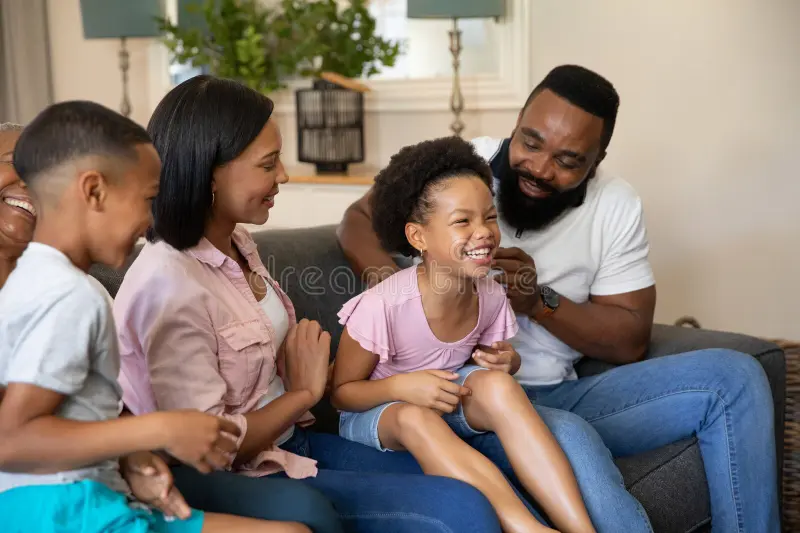
Let’s talk about something not often discussed enough between African parents and their kids.
Not love, we already know there’s love. “Bonding”.
In many African households, love is loud in sacrifice but quiet in expression. Parents provide, protect, and work tirelessly. But sitting down, relaxing, and simply being present together doesn’t always come naturally.
If you grew up in an African home, you already understand this.
When mum or dad comes back from work, the atmosphere shifts. The TV volume drops. Someone suddenly remembers plates in the sink. Another person starts sweeping a spot that’s been clean since morning. Everyone just… behaves.
Not because there isn’t love, but because closeness often comes with formality. There’s respect. There’s discipline. But that soft, easy familiarity between parents and kids can be rare.
So we grow up sharing the same house but living in different worlds. Parents tired from work. Kids busy with school, chores, or their phones.
And yet, years later, what we remember isn’t the rules or the lectures. It’s the small moments. The random laughter. The evenings when everyone relaxed and forgot to be strict for a while.
Sometimes, bonding doesn’t need a big conversation or a “family meeting.”
Sometimes, it’s as simple as watching a movie together.
Just, “Come and sit down, let’s watch this.”
That small invitation can change the mood of the whole house. Conversations start. Jokes fly. Someone explains the plot too much. Someone else steals the remote. And before you know it, everyone is actually together.
The right movie helps.
Something light and stress-free like Mr. Bean’s Holiday on Movie Room Africa (GOtv Channel 51), where Bean’s clumsy adventure across France delivers effortless laughter for both kids and parents.
Or The LEGO Movie on M-Net Movies 3 (GOtv Channel 43), following Emmet, an ordinary LEGO figure thrown into an extraordinary adventure. Fast, funny, and packed with clever humour adults enjoy just as much.
For louder nights filled with commentary and laughter, A Madea Funeral on M-Net Movies 3 (GOtv Channel 43) brings family drama, secrets, and Madea’s unforgettable honesty. And for the same chaotic fun with a spooky twist, A Madea Halloween on Movie Room Africa (GOtv Channel 51) keeps everyone half-laughing, half-shouting at the screen.
On quieter evenings, Dolphin Tale on M-Net Movies 3 (GOtv Channel 43) offers something softer. The true story of a rescued dolphin and a young boy’s bond with her leaves the room quiet at the end, but in the best way.
The beauty is that these stories are already there on GOtv. No planning. No pressure. Just press play and sit together.
They’re not “serious bonding activities.” They’re just movies. And sometimes, that’s enough.
Because one day, your kids won’t remember the chores or how strict the rules were.
They’ll remember moments like, “Remember when we watched that movie together and couldn’t stop laughing?”
And that’s what stays.
Right now, subscribers can enjoy all these and more with the We Got You offer, available until 28 February 2026. Pay for your current package and get upgraded to the next package at no extra cost, giving you access to more channels, more shows, more moments together.
To subscribe, upgrade, or reconnect, download the MyGOtv App or dial *288#. You can also stream anytime with the GOtv Stream App.
Showbiz
No One Is Safe: Six New Singles Storm the Love Pad In the Heartbeat Show
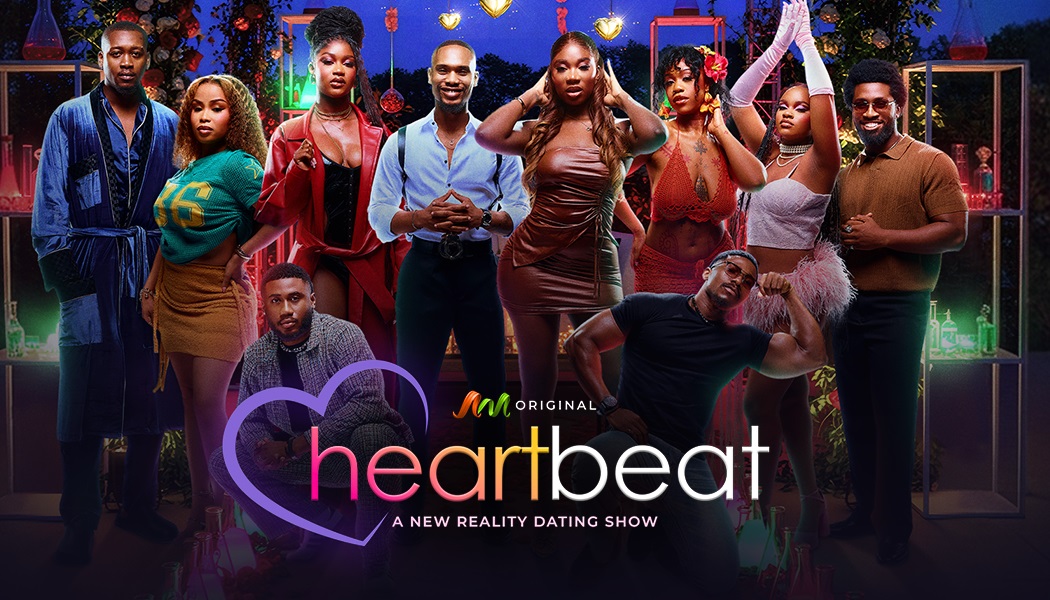
Episode 4 of Heartbeat kicked off with the drama still simmering from the last episode. Latifah held all the cards, literally, and shocked everyone by choosing Ken to spend the night in the Love Nest, going back to familiar ground instead of exploring someone new. a move that instantly set the tone for the night.
The Love Dip Game followed, flipping the house upside down once again. Matching numbers meant new overnight partners, leading to unexpected pairings: Igwe with Shekinah, Kena with Toria, Alvin with Chidera, and Hilda with Henri.
The biggest shock of the night was Kena and Chidera getting separated despite being emotionally“locked in”y. Kena assured everyone it wouldn’t affect their bond, but later that night, after tucking Chidera into bed, he was spotted hopping onto Hilda’s bed, leaving the house buzzing. Some singles quietly opted to sleep alone, choosing peace of mind over drama.
Morning brought no relief. Some woke up smiling, but others were drowning in emotions. Toria broke down, exhausted and overwhelmed, while Chidera offered comfort. Kena and Shekinah questioned how couples already “locked in” could even be split. Ken appeared unsure of what he wanted, Igwe was back to his charming ways with Shekinah, and Toria watched every move, convinced their connection wasn’t real. Meanwhile, Ken and Latifah kept the chemistry alive in the Love Nest, and Igwe eventually tried to make peace with Toria, only to sneak in some playful taunting afterwards.
Just when things felt tense enough, the energy in the Love Pad shifted, new singles arrived, and sparks immediately began to fly.
Meet the new singles.
Jane: She is an artist and businesswoman, confident and ambitious. She’s here to make her mark, stand out, and see which connections ignite the most chemistry.
Bosah: Describes himself as cool, calm, collected, and a man of many layers. He avoids manipulative women and hopes to impress through thoughtful conversation and genuine interactions. His type? Light-skinned women who can communicate.
Timi: Describeshimself as the cool guy, mysterious about his love life; he is here to find love while testing others. Tall, dark-skinned, slim women with pretty faces are his type, while insensitivity is a dealbreaker. He plans to vibe naturally and let connections flow.
Sharon Ray: The fashionista, fun, funny, and sarcastic one. Cheaters are a no-go for her, and she plans to make her impression by being unapologetically herself. Her ideal match? Tall, clean men.
Victory: He brings calm, mature energy. Petite, kind, gentle women who can hold constructive conversations catch his eye, while self-centred ladies are a no-go. He’s all about exploring chemistry quietly and naturally.
Ceeoni: Described herself as an icebreaker, witty, fun, and energetic. She loves intelligent, refined men, can’t stand “dirty” behaviour, and is ready to warm her way into someone’s heart while keeping things playful.
The new singles wasted no time in turning heads. Latifah joked that Victory feels like “Ken Pro Max”, and she has an eye for him. Victory admitted interest in Shekinah, Latifah, and Toria, and Toria already sensed Ceeoni might stir up trouble.
To keep things spicy, the singles played a daring card game where each picked a challenge and had to follow it, and things got wild fast. Latifah mimicked the person she finds most annoying (Henri), Toria called out Igwe and Shekinah’s “fake” connection, Shekinah kissed Igwe, Bosa kissed Latifah, Kena seductively fed Chidera, and Ceeoni boldly sat on Ken’s lap, whispering in his ear. Jealousy, tension, and unexpected sparks flew everywhere.
As the night wound down, Latifah and Ken tried to navigate the sudden surge of attention from both old and new singles. Meanwhile, one of the newcomers, Jane, openly declared that she wants Kena, no matter who he’s paired with or locked in with.
By the end of Episode 4, old bonds were shaky, new attractions were forming, and the Love Pad felt more crowded and complicated than ever. With fresh faces, high emotions, and hearts in motion, anything can happen next. Who will find real connection, who will flirt their way into trouble, and who will get left behind?
Tune in to Episode 5 to find out.
Catch Heartbeat every Sunday at 9 pm on Africa Magic Showcase, GOtv Channel 8.
Subscribers can also enjoy all these and even more value with the We Got You offer, available until 28th February 2026. When you pay for your current package, you’re automatically upgraded to the next package at no extra cost, giving you access to more channels, more shows, and even more ways to unwind.
To upgrade, subscribe, or reconnect, download the MyGOtv App or dial *288#. For catch-up and on-the-go viewing, stream anytime on the GOtv Stream App.
Showbiz
Top 5 Movies We Would Like to See Nominated for 12th AMVCA
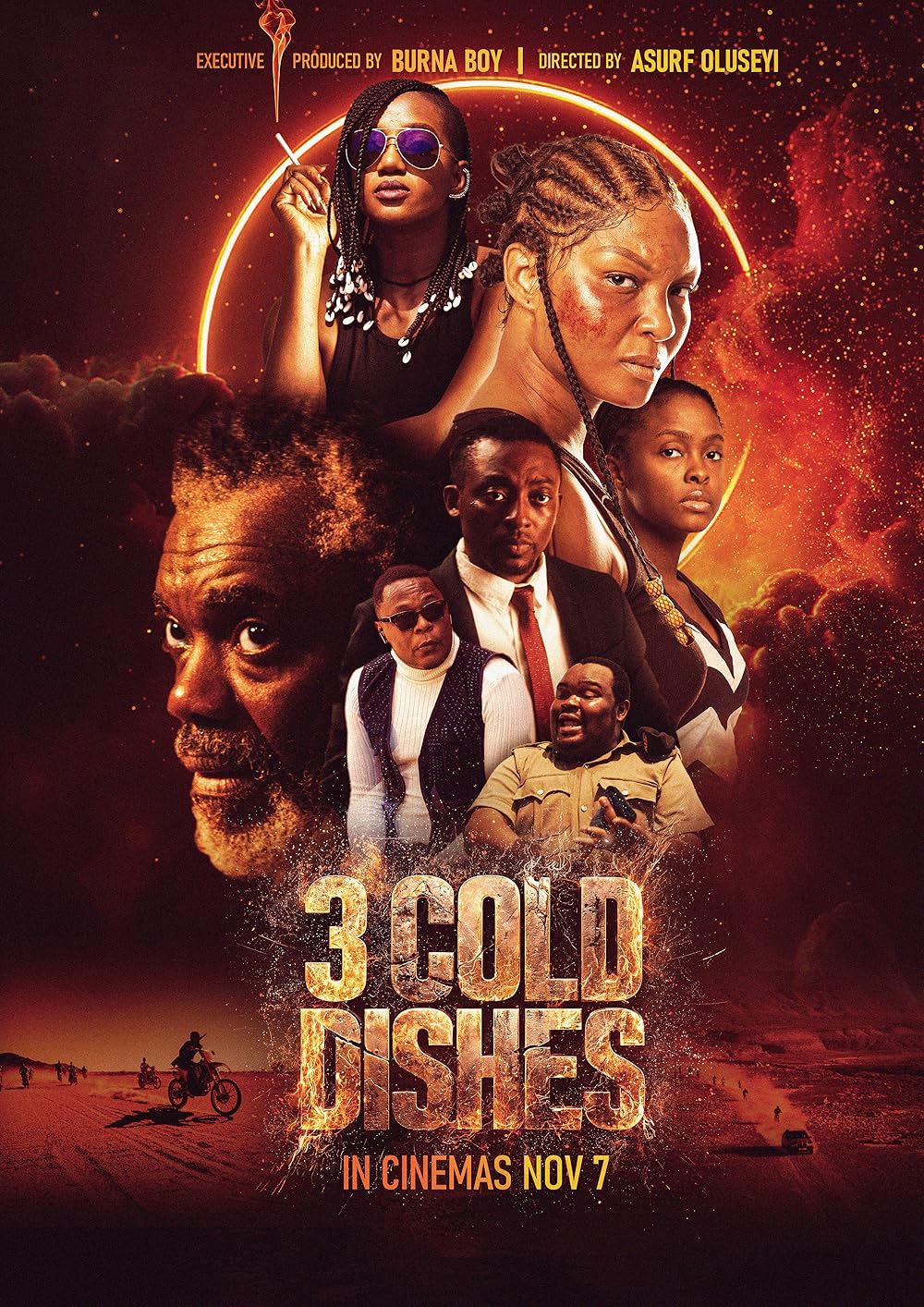
The African film industry is buzzing with anticipation for the 12th edition of the Africa Magic Viewers’ Choice Awards (AMVCA). Widely regarded as the “African Oscars,” the AMVCA isn’t just an awards ceremony; it’s a high-octane celebration of our stories, our fashion, and the sheer technical brilliance of filmmakers around the continent.
With the call to entry now officially open, all eyes are on the films that defined 2025 and could dominate the ceremony in May 2026. This year also marks an exciting shift with the introduction of new categories, such as Best Indigenous Language – North Africa and Central Africa, signalling a more inclusive era for continental storytelling.
We saw a series of blockbuster releases and record-breaking titles that captured audiences and sparked conversations across the continent. While the jury ultimately decides the nominees, the streets are already talking. Based on the incredible run of films released between January and December 2025, here are a few movies we would like to see dominate the nominations:
To Kill a Monkey
If any Nigerian film broke the internet in 2025, it was To Kill a Monkey. Kemi Adetiba proves once again why she’s at the top of her game, delivering a bold and culturally resonant story full of ambition, moral conflict, and unforgettable moments. Anchored by a powerful performance from William Benson, the film explores ambition, desperation, and compromise in a way that feels deeply relatable to the Nigerian experience. With exceptional production value, a memorable soundtrack, and storytelling that sticks with you long after the credits roll, To Kill a Monkey is a film made for AMVCA recognition across major categories.
3 Cold Dishes
The AMVCAs have always stood for celebrating the very best of African storytelling, and 3 Cold Dishes fits squarely into that tradition. It is a bold, well-told story that centres African women, African realities, and the kind of cross-border narratives that reflect the continent’s shared experiences.
Led by a standout performance from Osas Ighodaro, the film flips familiar narratives by placing women at the heart of a revenge story shaped by trauma, survival, and justice. Directed by Asurf Oluseyi and executively produced by Burna Boy, the film moves across multiple African countries, using its scale to spotlight the realities of human trafficking without losing emotional depth. Its strong storytelling, cultural relevance, and ambition make 3 Cold Dishes one of the most notable African films of late 2025 and a deserving AMVCA contender.
Mother of the Brides
Africa Magic delivers another hit with Mother of the Brides, a Lagos family drama full of heart, humour, and tension. When their father dies without a will, a matriarch has just 45 days to marry off one of her four daughters or risk losing everything to tradition and scheming in-laws. Her mother works tirelessly to keep the family together amid pressure from relatives and society.
The film doesn’t just show weddings and family drama; it also highlights the darker side of titled families in Nigeria, exposing secrets, power struggles, and the lengths people will go to protect their interests. With strong performances from Gloria Anozie-Young, Kalu Ikeagwu, Linda Ejiofor, Uche Chika Elumelu, and Ibrahim Suleiman, Mother of the Brides delivers laughs, tension, and storytelling, making it a clear standout for AMVCA attention.
Baby Farm
Mo Abudu and EbonyLife hit another high note with Baby Farm, a gripping drama series that shines a light on the dark world of “baby factories.” Starring Rita Dominic and Onyinye Odokoro, the film follows a young woman lured into a prestigious Lagos NGO only to uncover a sinister trafficking ring. Heavy, intense, and impeccably executed, Baby Farm combines blockbuster production quality with socially relevant storytelling, the kind of film that has the power to dominate the AMVCA nominations.
My Father’s Shadow
A cinematic landmark, My Father’s Shadow is the first Nigerian film to grace the Cannes Official Selection. Directed by Akinola Davies Jr., the story follows two young brothers reconnecting with their elusive father against the backdrop of 1993 Lagos. With a powerhouse performance from Sope Dirisu, the film is a poetic exploration of family, memory, and a nation on the brink of change. Its visual storytelling, direction, and performances make it a strong contender for technical and acting awards.
From bold, socially conscious blockbusters to intimate, character-driven stories, 2025 was a remarkable year for African cinema. Each of these films shows the range, depth, and ambition of filmmakers across the continent, telling stories that are both locally grounded and globally resonant. As the 12th edition of the AMVCA approaches, we hope these standout titles get submitted and have the chance to be recognised for the impact, creativity, and storytelling they brought to the screen.
-

 Feature/OPED6 years ago
Feature/OPED6 years agoDavos was Different this year
-
Travel/Tourism10 years ago
Lagos Seals Western Lodge Hotel In Ikorodu
-

 Showbiz3 years ago
Showbiz3 years agoEstranged Lover Releases Videos of Empress Njamah Bathing
-

 Banking8 years ago
Banking8 years agoSort Codes of GTBank Branches in Nigeria
-

 Economy3 years ago
Economy3 years agoSubsidy Removal: CNG at N130 Per Litre Cheaper Than Petrol—IPMAN
-

 Banking3 years ago
Banking3 years agoSort Codes of UBA Branches in Nigeria
-

 Banking3 years ago
Banking3 years agoFirst Bank Announces Planned Downtime
-

 Sports3 years ago
Sports3 years agoHighest Paid Nigerian Footballer – How Much Do Nigerian Footballers Earn









